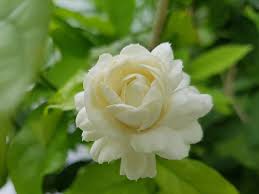A fundamental philosophical query is concerned with the nature of the ultimate good that man ought to pursue. Freedom, truth, God realization, authentic existence, moksha, and so on have been proposed in myriad garbs.
When hard nosed British philosophers of the 17th and 18th centuries proposed that man’s ultimate goal is, simply, happiness, and – the bedrock principle of democracy – the greatest happiness of the greatest number, their more pensive counterparts on the continent cringed. Happiness was too banal for them; certainly too banal a conclusion of lofty philosophical enquiry. One great man said with obvious contempt: “Man does not seek happiness – only the Englishman does.” In England itself there were questions – if it is only happiness that ought to be pursued as the ultimate good, then is pushpin (a popular game of chance and skill) equal to poetry and, one may ask in our context, classical music?
This would be the question to agonise over in these times when the classical arts are getting less and less support. Is there in the classical arts something of value so great that they should be pursued and supported, even though when administered the democratic test they might well score abysmally?
How does one describe the experience of seeing a great painting, or reading a luminous piece of prose or listening to powerful music? It is best if one does not! There is an ineffable quality to this experience as has been recognized across cultures. The Kashmir thinker Abhinavagupta said it was alaukika – not of this world, not of the world of practical cares and fulfillments… of pushpin.
There is technique –the initial mystique of a musician’s music or a writer’s writing wears off when we are able to put a finger on the techniques employed and the organizing principles used. Yet the music is never a sum of technique and repertoire and what have you. A writer is always more than his vocabulary. Much more.
The essential thing perhaps is the mind of the artist – her mind during the performance, the creation. Beyond technique and skill and virtuosity, the quality of inwardness that he or she manages to attain makes for the difference between very competent music and great music. And this, in a magical way, communicates itself even to the “layest” listener – in a hush, unfathomably.
Our best musicians get into this frame of mind – empty until the moment the music begins to flow out. Very rarely, almost never, an entire concert can carry this quality; more commonly, there are a few such moments in some concerts.
It is such music that makes wading through lesser music worthwhile. It is the possibility of such moments that sets the classical arts apart. We sit through an entire concert for those fleeting moments when all – the musicians and the audience – are merged wondrously into one consciousness. It puts us in touch with the deepest and quietest parts of us, and that is its value.
And what is this creation? Especially in something like Carnatic music that is so rooted in tradition? The musician draws from a tradition, has had years of training and practice, and yet when he attains that state of inwardness, the creation springs spontaneously – not out of any deliberate effort of memory and cleverness. Even if the form and content are well known, there is still the quality of freshness – like that of spring blossoms which year after year come out in the same well known colours and form and texture, but…. timeless beauty!
And if we don’t value the fragile beauty of our mallipoo and kanakambaram, so what? Nothing really – and everything!
(Published in The Hindu)

